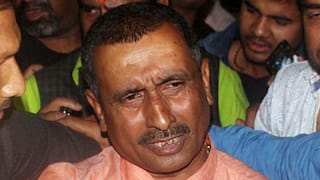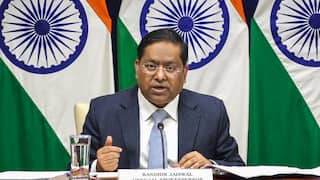Aditya-L1’s Solar Panels Are Deployed, First Orbit-Raising Manoeuvre To Occur On Sept 3. Know More
Aditya-L1's first orbit-raising manoeuvre, or perigee burn, will take place on September 3, 2023.

Aditya-L1, India's first space-based solar observatory to study the Sun, started generating power after its solar panels were deployed. The Indian Space Research Organisation (ISRO) posted this update after PSLV-C57 successfully placed Aditya-L1 into the intended orbit. This low-Earth orbit is circular, and in order to make the orbit elliptical, Aditya-L1 will undergo an Earth-bound orbit-raising manoeuvre. The first orbit-raising manoeuvre, or perigee burn, will take place on September 3, 2023, at 11:45 am IST.
ISRO successfully launched Aditya-L1 towards the Sun on September 2, at 11:50 am IST, from Satish Dhawan Space Centre, Sriharikota, Andhra Pradesh.
Aditya-L1 started generating the power.
— ISRO (@isro) September 2, 2023
The solar panels are deployed.
The first EarthBound firing to raise the orbit is scheduled for September 3, 2023, around 11:45 Hrs. IST pic.twitter.com/AObqoCUE8I
Aditya-L1 will undergo three orbit-raising manoeuvres, following which it will enter the cruise phase. The cruise phase will direct Aditya-L1 towards its destination. The observatory will be placed in a halo orbit around Lagrange point 1 (L1).
This is a strategic location where Aditya-L1 will be able to save fuel, and will also have an uninterrupted view of the Sun. L1 is located 1.5 million kilometres from Earth.
ALSO READ | Chandrayaan-3: Pragyan Rover Traverses Over 100 Metres On Lunar South Pole Region
It will take Aditya-L1 about 125 days to reach the halo orbit around L1. Aditya-L1 will study the Sun's corona, the mechanisms of solar activities, the problem of coronal heating, the dynamics of coronal mass ejections, and how solar activities affect space weather, among other objectives.
The spacecraft will remain operational for five years. It is equipped with seven payloads, which are of two types: remote sensing and in-situ payloads. There are four remote sensing payloads and two in-situ payloads.
ALSO READ | Aditya-L1: PSLV-C57 Successfully Places India's First Solar Observatory In Low-Earth Orbit
The remote sensing payloads will serve as spectrometers, and analyse the radiation from the Sun in different wavelengths. The in-situ payloads will study the environment around L1 to understand how particles emitted by the Sun affect the interplanetary medium.





































